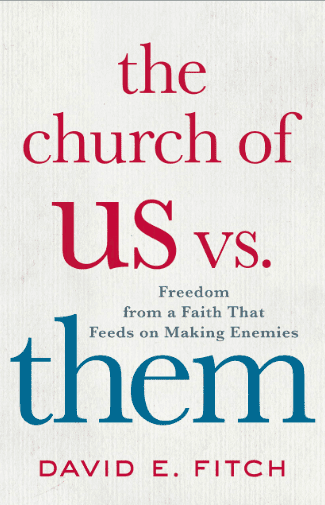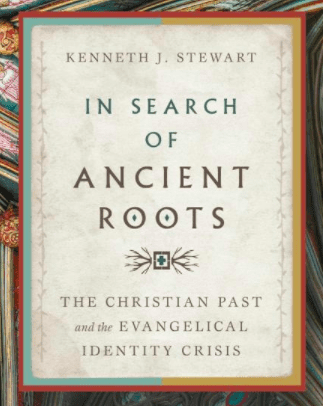There is a cottage industry in trying to define who is and who is not an evangelical. The editors of Four Views on the Spectrum of Evangelicalism (Counterpoints: Bible and Theology) contend, in their conclusion, that evangelicalism can be defined “sociologically” – or descriptively – or “theologically” – or prescriptively. The editors, Andy Naselli and Collin Hansen, no doubt have in mind David Bebbington and Mark Noll with “sociologically” and they surely have in mind folks like D.A. Carson, David Wells, John Woodbridge, and Al Mohler Jr. with “theologically.” This was the whole point of The Cambridge Declaration and The Evangelical Celebration, not to ignore the book Evangelical Affirmations. Each of these was an attempt to define evangelical and impose that definition on the whole of evangelicalism, at least call evangelicalism to its true meaning.
 Before I get to the four views in the spectrum of evangelicalism in the Naselli-Hansen book, let me say that the theological-oriented definers are those who hearken back to the Reformers and to the solas. So I ask right back, if I may, who is defining the term sociologically? Is it not the case that the “theological” group is defining the term “evangelical” according to the Reformers and those who are consistent with them? So, who is defining the term “sociologically”? The answer, if I may, is both – and at the same time neither totally.
Before I get to the four views in the spectrum of evangelicalism in the Naselli-Hansen book, let me say that the theological-oriented definers are those who hearken back to the Reformers and to the solas. So I ask right back, if I may, who is defining the term sociologically? Is it not the case that the “theological” group is defining the term “evangelical” according to the Reformers and those who are consistent with them? So, who is defining the term “sociologically”? The answer, if I may, is both – and at the same time neither totally.
Question for today: What is an evangelical? Are fundamentalists part of evangelicalism? Is the term worth preserving?
Here’s why I say both are defining the term sociologically. It is accurate to say that Bebbington examines the evangelical movement (a socially definable group) to find the central theological themes of that movement; one can call that sociological if one wants but it is more than that. But it is no more sociological than those who are hearkening back to the Reformers (a socially definable group), because this so-called theological approach is examining a set of theologians (Calvin, Luther, et al) and a movement and discerning their central themes (the solas), and saying “that is evangelicalism.” Conclusion: they are both sociological. This set of alternatives is not helpful for the discussion.
A more tangible unity could be obtained if we spent more time studying what the gospel means in the New Testament (but this is not a post on The King Jesus Gospel: The Original Good News Revisited).
But let’s be more modest in our epistemological claims here: both of these groups, those examining the Reformers and those examining the broader evangelical movement, know fully well that the principal group and its leaders believe they are adhering to what the Bible says. It would be far more accurate to say that all definitions of “what is an evangelical?” derive such definitions in the dialectic of Bible and group, that is, they are a combination of sociology and theology (not to mention history).
My intent in this post is not to get after that question, but to sketch the four views in the Naselli-Hansen volume, which I think is a useful and helpful volume. Yes, we may have chosen other authors (why not Noll, or Bebbington, or Carson, or Mouw, or even Horton – wouldn’t that have been interesting?) but these are four solid thinkers and four solid presentations, and no book could satisfy everyone. This book satisfies enough, and the authors are to be commended for their measured conclusions of recognizing that this discussion is uncontainable and uncontrollable but it is still important to have.
The authors: Kevin Bauder (fundamentalism – this piece satisfies Andy Naselli’s interests in fundamentalism), Al Mohler (confessional evangelicalism), John Stackhouse (generic evangelicalism), and Roger Olson (postconservative evangelicalism). Interesting choices, and they make for an interesting volume.
Briefly: this is a white man’s, a 50 yr old plus white man’s set of concerns. There is insufficient attention to the undercurrents of contemporary evangelicalism and postconservative evangelicalism, to the emerging generation, to the African American church or to the Latin American church, to the increasing role of women in American evangelicalism, to the Wesleyans like Ben Witherington or to the reality of plenty of evangelicals in the mainline, to the outgoing tides and to the trends of where we are headed … so we need to see this book for what it is.
Bauder reads the history of American evangelicalism well. Too many younger evangelicals don’t even know this history as the context for all of these debates about what is an evangelical. Bauder rightly sees the rise of NeoEvangelicalism as a coalition of compromise, and he doesn’t like it. I like the compromising coalition, which is noticeable in folks from Whitefield on, and I think that coalition is what made (neo)evangelicalism what it was — led by Billy Graham and John Stott and Christianity Today and there’s a worldwide movement as well. And when Stackhouse comes around to tell us that transdenominationalism is to be added to the Bebbington quadrilateral (crucicentrism, Biblicism, conversionism, activism), he is affirming as a characteristic what Bauder sees as the problem. That compromising coalition is what distinguishes evangelicalism from fundamentalism. And this is why I don’t think it is at all useful to call fundamentalism a kind of evangelicalism, and that is why some of us have our eyes on … read on:
Al Mohler, because he overtly admits he’s with Bauder mostly, which confirms for many of us what we’ve been saying: Mohler advocates a new kind of fundamentalism. That’s not an insult; it’s historical description. Mohler’s classed in this book as “confessional evangelicalism” but his confessionalism sits uneasy with me a bit, and I’ll tell you why: Mohler doesn’t quote one “confession” in this piece so I’m really left guessing what confession he means. From reading it I would suspect he means the Reformation solas, perhaps The Cambridge Declaration, or some kind of mix of those sorts of statements. He’s Baptist, which means The Abstract of Principles, but he doesn’t really get into that, and he could mean local church statements of faith. But, frankly, confessionalism refers to either the Lutheran confessions or the Reformed confessions, and I can’t see that term applying to statements of faith among the Baptists. The Westminster folks are confessional; Baptists are not. But Mohler’s orientation is clear: he’s a theological conservative, he’s committed rigorously to the major ideas of the Reformation, and he thinks too many evangelicals are drifting.
Stackhouse and Olson are closer to where I am, and I have thought for a long time that Bebbington’s quadrilateral, adding to it the Marsden coalition idea, helps immeasurably in mapping what evangelicalism really is. In other words, it just isn’t as “confessional” as a lot of bounded-set folks would like. (I wonder if “confessional” and “evangelical” actually disqualify one another.) Evangelicalism, and this is what we find in Stackhouse and Olson, is a centered-set movement and all such people are “more or less” evangelical. That is why Olson’s emphasis on evangelicalism as a “movement” is so blooming accurate. He’s also right, and I suspect this is why I think Horton would have been fun had he been in the mix, that evangelicalism mixes the more or less Reformed orthodoxy with pietism and revivalism. So, to Bebbington’s four and a fifth with Marsden’s coalitionism, Olson adds “respect for historic orthodoxy,” and Olson’s right again – this has always been a feature of evangelicalism. It is classically orthodox.
Here’s a sketch of what’s going on: evangelicalism is a coalition of classic orthodox Christians who are committed to the four features of Bebbington. Evangelicalism describes the meeting place, the village green. Fundamentalism thinks the coalition gathering on the village green compromises the gospel. Confessionalism is what happens in the churches around the village green, and can’t be imposed on the coalition without pushing people off the green.
This book shows the tensions at work in evangelicalism but the most faithful examples of what evangelicalism is can be found in Stackhouse and Olson.











